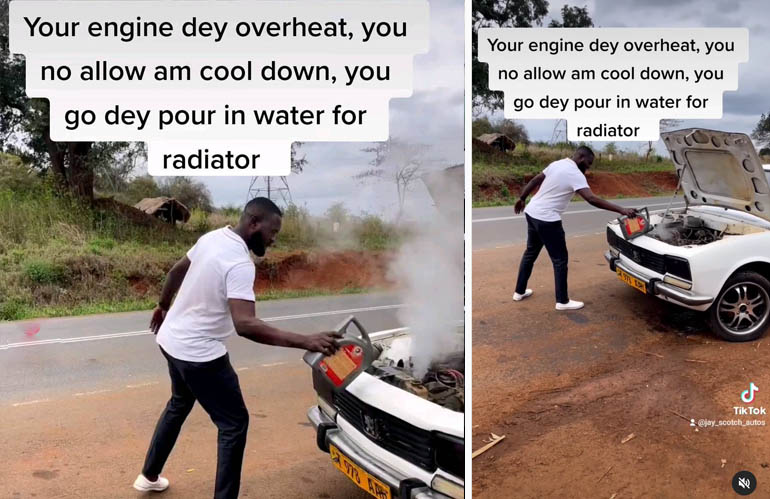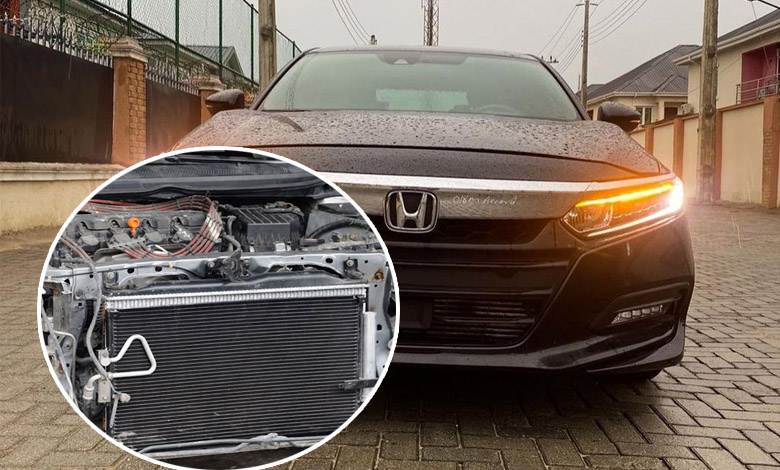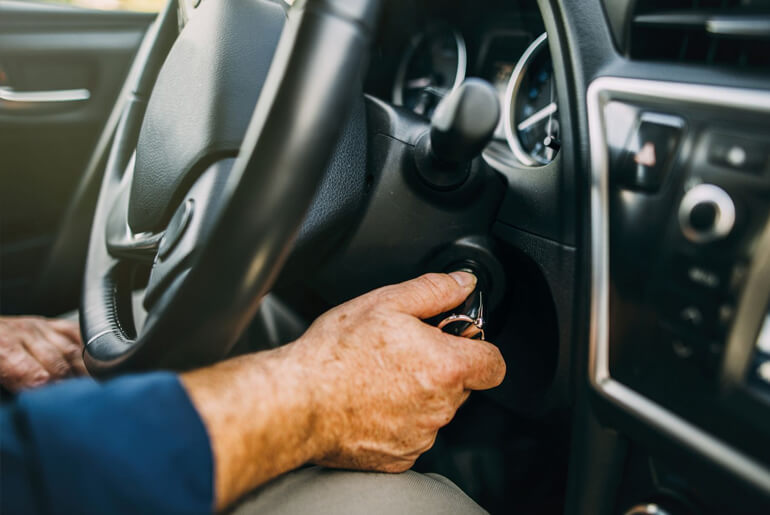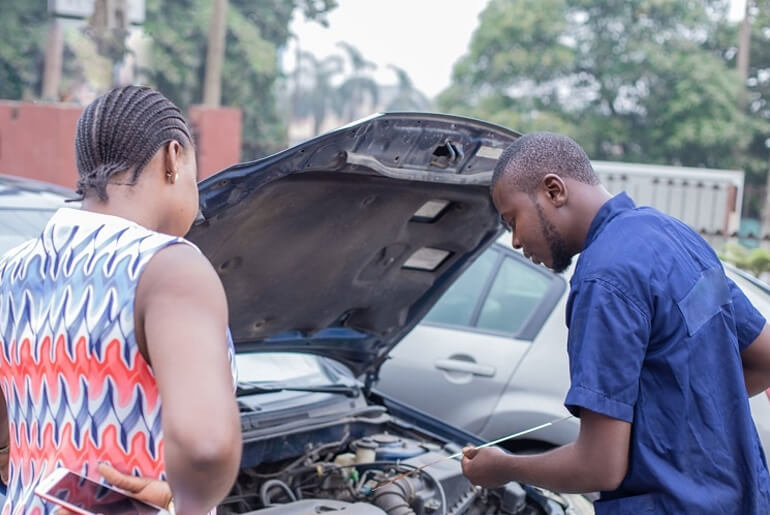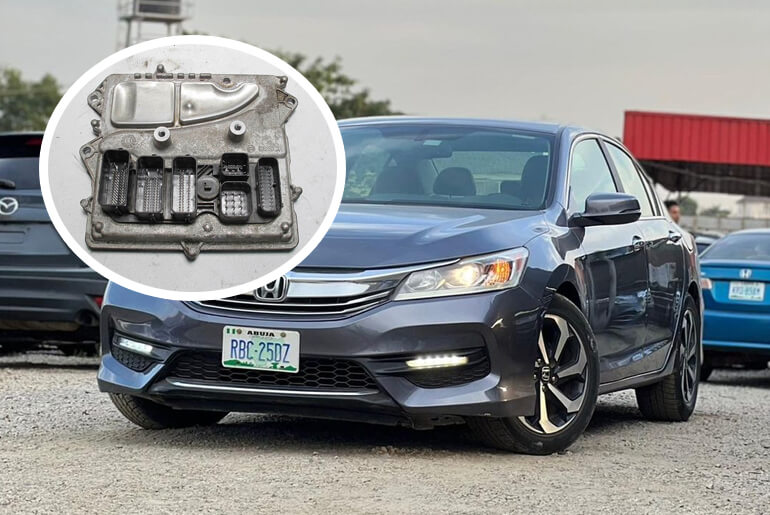With the busy urban jungle lifestyle, some of us tend to forget the basic things in life such as doing regular car maintenance. However, taking basic things for granted can lead to an uneventful scenario. This is why it is recommended to take car maintenance seriously, especially if you own an older car model. In this way, you can prevent car-related hassles, like engine overheating, from happening. Here are seven ways how to prevent your car’s engine from overheating.
Table of Contents
What is Car Overheating?
Car overheating refers to a situation where a vehicle’s engine gets too hot and is unable to dissipate heat effectively. The engine needs to be at a specific temperature range to work properly and efficiently, if the temperature exceeds the range, it causes the engine to overheat. Overheating can cause serious damage to the engine and can lead to costly repairs if not addressed quickly.
When the engine is running, it generates a lot of heat, which is dissipated by the coolant circulating through the engine and the radiator. The coolant absorbs heat from the engine, and it flows through the radiator where it is cooled by the air passing through the fins. The thermostat controls the flow of the coolant to regulate the engine’s temperature. When the coolant is not flowing properly or the radiator is clogged, the engine will not be able to dissipate heat effectively, causing the engine to overheat.
Signs of Car Overheating
Signs of overheating include the temperature gauge in the red zone, steam coming from under the hood, a sweet smell of coolant, warning lights on the dashboard, and a decrease in power. It is important to address the problem immediately and have the vehicle inspected by a professional, as continued driving can cause severe damage to the engine and other components.
How Does Car’s Engine Develop Overheating
There are several reasons why a car’s engine may overheat:
- Low coolant levels: If the coolant level is low, the engine will not be able to dissipate heat effectively, causing it to overheat.
- Leaking coolant: A leak in the coolant system can cause the engine to overheat by not allowing enough coolant to circulate through the engine.
- Faulty thermostat: A faulty thermostat can prevent the coolant from flowing properly, causing the engine to overheat.
- Clogged radiator: A clogged radiator can prevent the engine from dissipating heat, causing it to overheat.
- Faulty water pump: A faulty water pump can prevent the coolant from circulating properly, causing the engine to overheat.
- Air traps: air traps in the coolant system can cause the engine to overheat by not allowing the coolant to circulate properly.
- Lack of proper maintenance: Lack of regular maintenance can lead to a build-up of dirt and debris in the coolant system, causing the engine to overheat.
- Overuse of A/C: Overuse of the air conditioning system can cause the engine to overheat, as the A/C compressor puts extra load on the engine.
If you notice signs of overheating, such as a temperature gauge that’s in the red zone, it’s important to stop the car and turn off the engine as soon as possible to avoid serious damage. It’s best to seek a professional to diagnose the problem and fix it.
8 Ways To Prevent Your Car’s Engine From Overheating
Check your car’s coolant and radiator regularly
One of the best ways to prevent your car’s engine from overheating is to regularly check the coolant reservoir and radiator. In this way, you can ensure that your car has enough coolant and water.
Check it once a week or on a daily basis before you head out on the road. If ever you’re going on a road trip, make sure to check your car’s coolant and water to prevent engine overheating—you surely don’t want to spend your road trip in a stalled car, right?
Be mindful of the temperature gauge
Drivers often look at the fuel gauge and hope that it’s not nearing the empty mark. Some tend to take the temperature gauge for granted, which is an essential tool in helping to prevent engine overheating.
Since it is a temperature gauge, it is there to inform the driver if the engine is becoming too hot. Don’t panic when you see the temperature rising—you should instead assess and try to locate the nearest emergency bay or gasoline station.
Turn off the car’s air-conditioner
Turn off your car’s air-conditioner when the engine temperature is rising. This will help the engine reduce its load and therefore give you more time in containing the temperature.
On the other hand, you can also turn on your car’s blower in full blast as this will suck the heat from the engine bay onto the cabin. Yes, the interior cabin will be hot but this can help prevent your car’s engine from overheating–just think that you’re inside a sauna and about to get a full body massage.
Rev it while in neutral
If ever you’re stuck in traffic, shift your car into neutral and rev the engine. This will allow the fan to create more air and it also enables your car’s coolant (if there’s anything left) to flow.
Consider replacing your car battery
If your car battery is older than three years, it may not be providing the power it once did, so your car has to work harder and can overheat.
Pull over to a safe place
If the temperature continues to go up, the best thing to do is to pull over to a safe place–it may be in EDSA’s emergency bays, lay-bys along the expressway, or a gasoline station. Upon finding a safe place to stop, turn off your car’s engine and open the hood so that the heat trapped in the engine bay can escape.
Then, you should let the engine cool down for about 20 minutes. When the steam has subsided, pour water over the radiator to further bring the temperature down; do this after 20 or so minutes have passed because if you do it sooner than that, your radiator–or worse, your engine block–might crack from the sudden temperature change and result in an even costlier repair bill.
Bring extra coolant and water
You should have an extra coolant and around six gallons of water in your car as these two things will be useful when your car’s engine overheats. Open the radiator cap once the engine has cooled down–never open the cap when the temperature is high because it has a pressure that could lead to serious burns. After opening the cap, fill the radiator with water.
Check for leaks
After pouring water and coolant, monitor your car’s temperature before heading out on the road again. If it’s still rising, chances are your car has a leak. It’s time to call your trusted mechanic when this happens in order to conduct a comprehensive check on your car.
Conclusion
Overall, you can prevent your car’s engine from overheating if you do a regular maintenance check. Imagine the hassle this certain car problem can give you while you’re on the road when it can be prevented by simply popping your car’s hood open to check for the necessary fluids.
Have 1 million naira and above to Buy or Sell Cars In Nigeria? Check carlots.ng
All rights reserved. Reproduction, publication, broadcasting, rewriting, or redistribution of this material and other digital content on carmart.ng is strictly prohibited without prior express written permission from Carmart Nigeria - Contact: [email protected]

